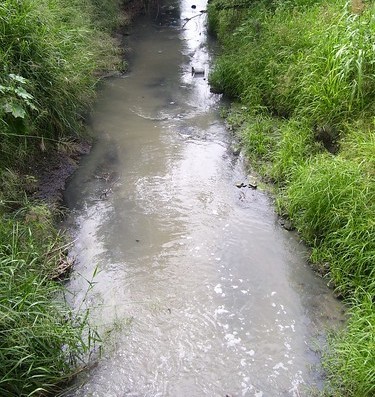sandbox-wastewater
This draft wiki page is a work in progress!
Where does water go once it flows down the sink drain? What about the water trickling down the street into storm drains? Or water discarded from industrial activities?
Wastewater is “used water” that’s created by households, cities, and industry. It ranges from sewage to surface runoff that can flow from roadways into storm drains. Because wastewater can come from many different sources, it can contain a variety of pollutants—soaps and personal care products, human waste, pesticides and fertilizers, and fuel, to name a few. Industrial processes might produce wastewater laced with heavy metals or heated so hot that it harms living things nearby.
Who’s affected by wastewater pollution?
Depending on where you live and what produces the wastewater, it might be collected and cleaned (“treated”) before being released back into the environment, or it might be piped pollution-and-all directly into the environment. If the wastewater is treated, different kinds of treatment vary in how effective and efficient they are. Damage to pipes and other infrastructure can also let wastewater leak into the environment. People living near places where wastewater is discharged or treated might encounter pollutants from wastewater.
On this page we’ll collect and organize resources on wastewater and how people can begin to investigate it. Visit the wastewater tag page to see the latest community posts about wastewater on Public Lab, and get updates on this topic by following:
Sources: + Wastewater pollution
Community stories and projects
- Gowanus Canal aerial mapping and dye tracing to document combined sewer overflows (CSOs)
Questions from the community
Questions tagged with question:wastewater will appear here
| Title | Author | Updated | Likes | Comments |
|---|---|---|---|---|
| What are health and environmental concerns for sewage smell in a home? | @stevie | over 2 years ago | 1 | 3 |
| What are some observable tell-tale signs of wastewater pollution? | @bhamster | over 2 years ago | 1 | 11 |
| Who do you contact on stormwater concerns? | @stevie | almost 6 years ago | 0 | 2 |
| What are sources of stormwater pollution? | @stevie | almost 6 years ago | 0 | 2 |
| How is stormwater regulated? | @stevie | about 7 years ago | 0 | 4 |
Research wastewater
Some places to start
How to report pollution entering your local stormwater system in the US
Post by @bhamster 5 | over 2 years ago
Post your photos of possible wastewater pollution! / ¡Postea tus fotos de aguas posiblemente residuales! 📷
Post by @bhamster 2 | over 2 years ago
How to find out if waterbodies near you in the US are healthy or impaired
Post by @bhamster 0 | over 2 years ago
Information on wastewater pollution
How people might get exposed to wastewater
Common pollutants in different kinds of wastewater
- Common water contaminants: wiki with info on contaminant, potential sources, methods, and how to address the problem
Methods to monitor wastewater
We're hoping to develop more information about the methods below...
- Photo documentation
- From the ground
- Aerial mapping
- Multispectral imaging?
- Turbidity sensing
- Bacteria testing
- Temperature sensing
- Conductivity sensing
- Bioindicators
- Spectrometry?
Detecting possible wastewater pollution
Here are some clues to look out for that might indicate wastewater pollution. The methods used to assess these clues are broad and won’t identify specific pollutants or a source of the wastewater.
Visible change in water color or clarity
Why? Solid particles or chemicals in wastewater can give it a color or cloudy appearance. When wastewater is discharged into the environment, you might see a discolored plume in a river or a colored residue on land.

Image: Sustainable Sanitation Alliance, CC BY
Methods:
- Observing or measuring turbidity of water. Solid particles floating throughout the water (called suspended solids) increase its turbidity. Learn more about turbidity in this research note from @anngneal.
- Photo documentation
- Physically measure with a turbidity sensor
- The turbidity wiki has a list of sensors + Question: How do I choose a method for monitoring turbidity?
Regulations, policy, and advocacy
US federal regulations
State and local regulations
- https://publiclab.org/notes/gretchengehrke/10-28-2016/colorado-regulations-hotsheet#Effluent+Turbidity
- https://publiclab.org/notes/liz/03-06-2014/hudson-riverkeeper-teaches-how-to-report-gowanus-pollution




